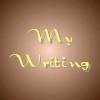
September 13, 2006
|
I had something interesting come up on Saturday.
I started two classes. In one, the topic came up of budgets. He made us think about projects we've worked on, and all the costs involved. So, here are some samples of expense lists from my first novel: Draft Expenses: The Assignment
Doesn't seem like a lot, does it? Consider that I purchased ink several times, and one refill kit was a little more than the total expenses for six drafts. That's over four times the amount shown in total expenses. Then, there are living expenses: utilities, food, gasoline. These take up that same amount over three or four days. Given that the book went from initial concept to short story to novella to novel to published novel in 22 months, we can assume the total expenses were in the range of $11,000. Of course, bills and food were taken care of by other income, but what if you have no income? Editing on your computer reduces the expenses of paper and ink, and e-submissions are slowly becoming more common. I don't recommend either, though. First, editing by hand is more likely to draw your attention to certain types of errors, and letting someone else proofread almost requires a hard copy. And many who use e-subs end up with no record of the submission. Let's get something straight: Starting out in writing barely pays anything. You need something on the side: a (part-time!) job, a second trade (like my art), a certificate of deposit stashed away somewhere. You don't have to be making a million, just enough to pay the bills and taxes. If you start making it big, you can take it more easy. Not taking it easy leads to writer's block. Writer's block is very real. When it happens, it's the most frustrating think that any writer can go through. You can know the story inside and out, every detail, every character trait, every foreshadowing, et cetera, et cetera, et cetera (or not), but when you sit down the next words refuse to come to the surface of your mind. This is writer's block. Don't listen to anyone who claim's there's no such thing as writer's block. They've just never had it. Yet. There are three causes of writer's block: 1. Burnout Burnout is when you've done too much and your mind refuses to cooperate because it needs rest. This requires two days to two weeks of staying away from all writing. Go do something relaxing that doesn't require much thought, like kite flying, going to the beach, or visiting family. When you come back, the ideas should start coming. 2. Lack of preparation This is more manageable because it keeps you on the story. The problem is that you're missing something that needs to be in the story. Believe me, this is far more common than many people think. When this happens, just go back and rework your characters, storyline, or plot devices. Once you find what's absent, the story will flow again. 3. Too much rest If you take too much time away from the writing process, you'll lose touch with your entire creative process or forget part of your story. Remember to take two non-consecutive days off each week--the same days each week--and write 4-6 hours each day. If you take a break for writer's block, that's fine, just don't be away for too long. Vacationing? Do some short, personal prose or poetry while you're gone, and go someplace that stirs the creative juices in your mind. Ireland's Ring of Kerry is a great place for writers to go; Keats and Yeats both gained inspiration there. The worst piece of advise for getting over writer's block is this: "Just sit down and write!" This can work with 3. above, but over the course of two or three days of short bursts. It will make 1. or 2. worse, so it's really a terrible idea. Back on 2. above: Frequently, what you are missing is a solid ending. This is one of the most important things you can have before you actually start writing. I'll talk about this in my next blog.
|
|||||||||||||||||||||||||||||||||






